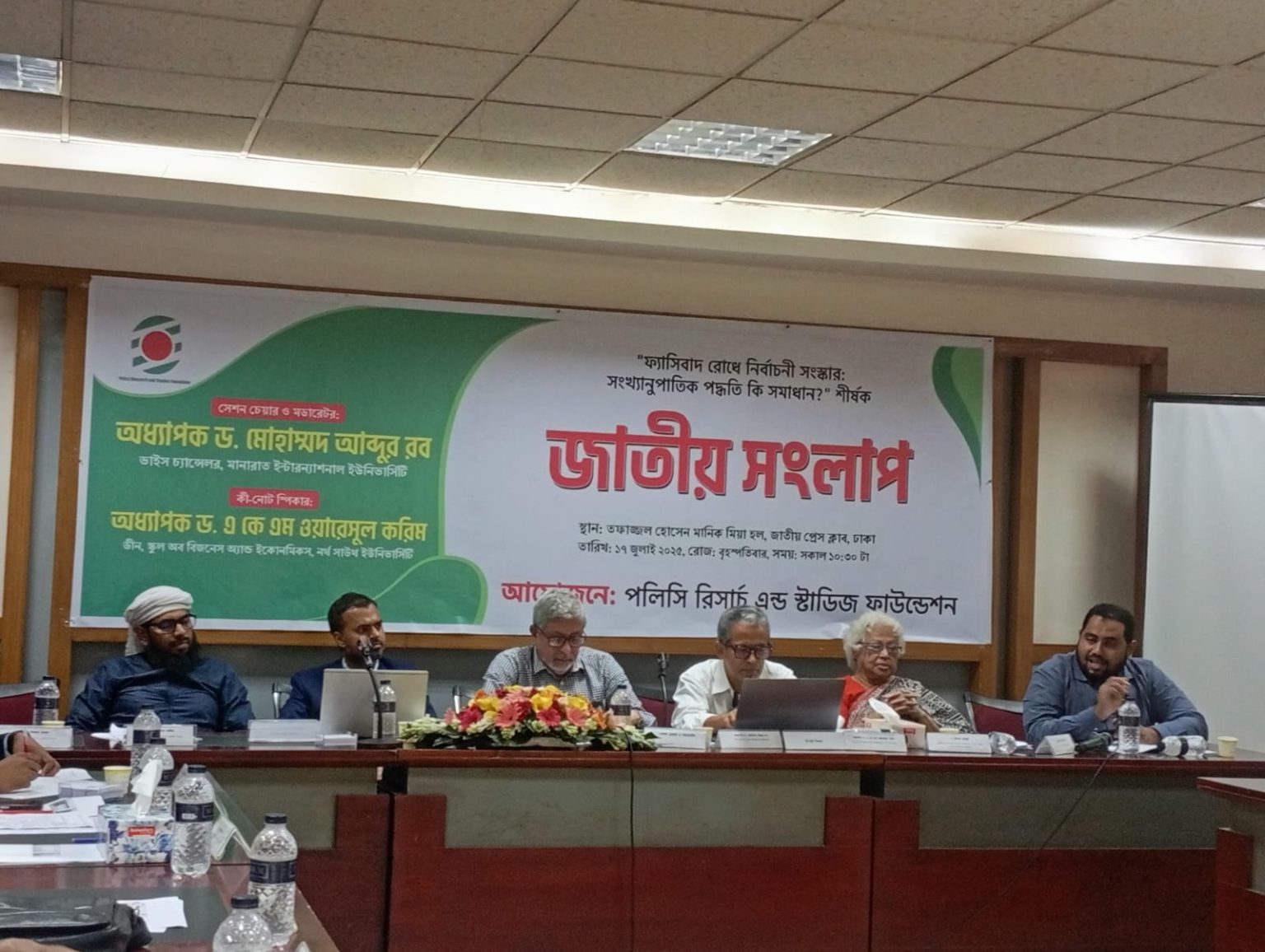The Proportional Representation (PR) electoral system, although used in many countries, is still a new concept for Bangladesh.
For PR elections to be held, there must be proper understanding of the system and awareness among voters. Sufficient study is required before moving forward, said Dr Dilara Chowdhury.
She made the remarks on Thursday during a national dialogue titled “Is Proportional Representation the Solution to Uproot Fascism?” organised by the Policy Research and Studies Foundation at the National Press Club in Dhaka.
Dr Chowdhury, a professor and former chairperson of the Government and Politics Department at Jahangirnagar University, said, “Many are still unclear about what the PR system actually is.” She described it as a complex matter and said that implementing it requires research and preparation. She questioned whether there is enough time to study the system thoroughly before elections.
She added that if properly conducted, PR elections could save the country from the destructive experience of previous elections. But if the system is flawed, it could push Bangladesh back into authoritarianism.
Bangladesh Jamaat-e-Islami Assistant Secretary General Ehsanul Mahbub Zubair said that PR is currently the best proposal to prevent dictatorship or authoritarian rule, especially considering the poor record of past elections.
However, he added that there must be discussion on the disagreement over unicameral and bicameral legislature structures.
Maulana Ataullah Amin, joint secretary general of Bangladesh Khelafat Majlish, said a mixed-member PR system is more suitable for Bangladesh. He argued that the traditional PR model does not match the country’s geographic and social context.
Representing his party, he said they prefer mixed-member PR to ensure that key party leaders can enter parliament and express their views. He also said all parties must reach consensus to ensure that no system allows the rise or existence of fascism in Bangladesh.
Advocate Mujahidul Islam Sahin, joint convenor of the National Citizen Party (NCP), said their party supports a bicameral system, the lower house elected under the existing rules, and the upper house through PR. He emphasised that voter awareness is essential for implementing PR and that the judicial system must also be strengthened.
Professor Dr Zulfikar Hasan, dean of the Faculty of Business and Economics at City University, said PR-based elections would result in balanced representation of all parties in parliament.
Other participants in the discussion included Masumur Rahman Khalili, executive editor of Daily Naya Diganta; Dr Md Abdul Aziz, director general of Bangladesh Institute of Islamic Thought (BIIT) and Enayet Hossain Zakaria, CEO of Impact Initiative. They spoke on the benefits and challenges of PR elections in Bangladesh.


